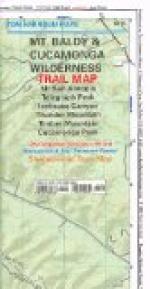He knew that the canoe was moving, moving rapidly; for giant pines along the shore, looking solid and black as mourning pillars, shot by him as if theirs were the motion, with an effect indescribably weird. Now and again a gray pine stump, appearing, if the light struck it, twice its real size, passed like a shimmering ghost. But he felt not the slightest tremor of advance, heard no swish or ripple of paddle.
A moisture oozed from his skin, and gathered in heavy drips under the brim of his hat, as he began to wonder whether the light bark skiff was working through the water at all, or skimming in some unnatural way above it. For the life of him he could not settle this doubt. And, fearful of balking the expedition by a stir, he dared not turn his head to investigate the doings of his comrade, Cyrus Garst.
Cyrus, though also city bred, was an American, and evidently an old hand at the present business. The Maine wilds had long been his playground. He had studied the knack of noiseless paddling under the teaching of a skilled forest guide until he fairly brought it to perfection. And, in perfection, it is about the most wizard-like art practised in the nineteenth century.
The silent propulsion was managed thus: the grand master of the paddle gripped its cross handle in both hands, working it so that its broad blade cut the water first backward then forward so dexterously that not even his own practised hearing could detect a sound; nor could he any more than Neal feel a sensation of motion.
The birch-bark skiff skimmed onward as if borne on unseen pinions.
To Neal Farrar, who had been brought up amid the tumult of rival noises and the practical surroundings of Manchester, England, who was a stranger to the solitudes of primitive forests, and almost a stranger to weird experiences, the silent advance was a mystery. And it began to be a hateful one; for he had not even the poor explanation of it which has been given in this record.
It was only his third night in Maine wilds; and I fear that his friend Cyrus, when inviting him to join in the jacking excursion, had refrained from explaining the canoe mystery, mischievously promising himself considerable fun from the English lad’s bewilderment.
Neal’s hearing was strained to catch any sound of big game beating about amid the bushes on shore or splashing in the water, but none reached him. The night seemed to grow stiller, stiller, ever stiller, as they glided towards the head of the pond, until the dead quiet started strange, imaginary noises.
There was a pounding as of dull hammers in his ears, a belling in his head, and a drumming at his heart.
He was tortured by a wild desire to yell his loudest, and defy the brooding silence.
Another—a midnight watchman—broke it instead.
“Whoo-ho-ho-whah-whoo!”
It was the thrilling scream of a big-eyed owl as he chased a squirrel to its death, and proceeded to banquet in unwinking solemnity.




